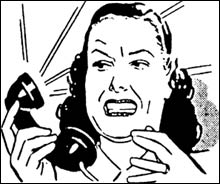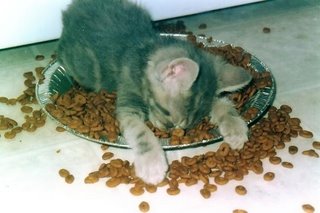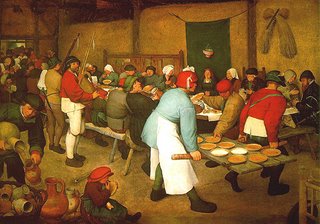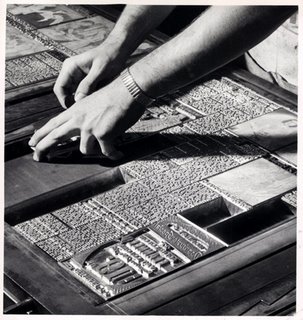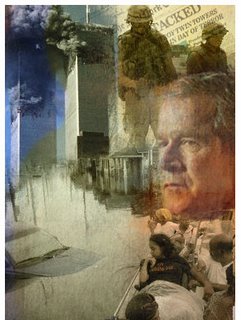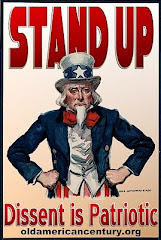When people started saying, soon after Sept. 11, 2001, that “everything has changed,” I took it with a grain of salt. Yes, the attack by foreign terrorists on the American mainland was unprecedented. Like everyone else in America, I was shocked, stunned, rendered nearly speechless by the sheer, evil audacity of the attack. And my heart ached and broke for the innocent people who died so horribly that day. My mind shied away from even imagining the terror and pain they must as felt as the Twin Towers exploded, burned and collapsed.
For a little while afterwards, there was noticeable change in the way we treated each other as Americans. We grew closer to our neighbors. We gave everything we were able to help the victims of the attack. Memorials of all kinds were created all over the country. In the community for which I edit the local weekly, a two-ton boulder which has served as a sort of billboard for local teen-agers armed with spray paint for the last 30 years was painted over with a big American flag, the words “God Bless U.S.A.” lettered over it in gold. Countless pots of live flowers and bouquets in vases, small flags and other symbolic paraphernalia were left there, on top of the rock and all around it. Some local construction guys even erected a towering flagpole and a giant flag on a nearby hilltop. The local fire department, when it held its annual community get-together a couple of weeks after Sept. 11 to raise funds for burn victims and, that year, for the victims of 9-11, unfurled a flag from the extended ladder of its new ladder engine as dusk fell. They trained a spotlight on the flag. The crowd gathered beneath stopped its good-time reveling and stood in total silence for a long, long minute, some praying, others dried-eyed, all remembering.
That was all good. It was healthy. Our community alone raised an incredible amount of money for the families of the 9-11 victims and for the rescue personnel who’d lost their own lives trying to save them. I’m talking thousands upon thousands of dollars. It was an outpouring of love, support and solidarity. I’d never seen anything like it before – and haven’t since, not even for the tsunami victims, Hurricane Katrina’s victims or the victims of the Pakistan earthquake.
For that first month or so after Sept. 11, we were part of a nation in mourning. “Everything’s changed,” people said solemnly. It was like a mantra, repeated over and over by the news media, our national substitute for independent thought until it was accepted as fact.
I didn’t see it, though. Yes, there was this natural coming together, this sudden feeling of being part of a vast brotherhood (for want of a better word). That was a change. We were Americans. We’d been hurt. Our country had been hurt. For the first time since Pearl Harbor, Americans became aware that they were not absolutely immune from Bad Things Happening.
But instead of looking for answers as to why this small group of low-tech, tragically deluded religious fanatics – call them evil, if you wish -- could have wanted to injure us this way, or how they were even able to manage such a thing, we stopped thinking. Individually and as a nation, we quit asking “why” and gave in to blind, righteous rage.
Our president fanned that rage. “They hate our freedom,” he said, speaking as if to traumatized children. And like children, a majority of Americans took him at his word. The 2000 presidential election had thrown us off balance. We were unsure about the concept of a president appointed by our Supreme Court, instead of being elected with a majority of votes. We were nervous about what that might portend regarding our democracy. It was a disconcerting time. America was looking for reassurance.
And yes, I know. Anger is a natural reaction to malicious injury. It’s also a natural part of the “grief process,” as the blabby, socio-psychological woo-woo industry calls it. We needed action. Individually helpless, as a nation we needed to make the ones who did this mind-bendingly awful thing to us pay.
Suddenly, a whole industry in American flag kitsch sprang up. Old Glory was pinned to suit lapels, blouses, and stuck as decals of various designs and sizes on car windows and bumpers. People flew flags from their car windows. One guy in our community painted his entire garage door as an American flag. They flew everywhere, from our hilltop to – wait for it – a local car dealership. That particular flag was so big it could have covered my house.
George W. Bush stepped up and declared a “War on Terror,” wearing an imaginary ten-gallon Stetson and run-down cowboy boots, making simplistic “High Noon” utterances about catching the villains. The bad guys could run, but they couldn’t hide, he said. Blood for blood. He turned his steely gaze toward the backwards, impoverished nation of Afghanistan, pointing a long finger at its fundamentalist Islamic government, which harbored “terrists.” Most Americans supported him; we wanted justice.
And so America went to war in defenseless Afghanistan, toppling the Taliban, chasing down Osama bin Ladin’s al-Queda terrorists, destroying their training camps and, after a while, pursuing bin Ladin himself into the mountain strongholds of Tora-Bora on the border of Pakistan. We were in the final moments of the final reel, holding our collective breaths for the denouement.
And then, everything DID change. Instead of throwing our forces into catching the architect of Sept. 11 and bringing him to justice, Marshal Dillon turned into Barney Fife, fumbling his gun around. He diverted America’s might to Iraq, where Saddam Hussein was busy admiring his reflection and writing bodice-rippers in his free time.
You know what happened next.
We were taken into a “pre-emptive” war against Iraq on the strength of lie after lie. Here in America, as W. visited “Shock and Awe” against innocent Iraqi civilians in our names, we were told to do our part, credit cards in hand, and be consumers for America. The weapons of mass destruction we were told Saddam had, ready to launch against us at any moment, didn’t exist. The nuclear weapons the administration warned he was capable of producing in the blink of an eye didn’t exist, either. Darn. Well, oops! We’ll just give those ungrateful Iraqis democracy and freedom at gunpoint while we take control of the oil that lays beneath their sands.
That warm, inspirational sense of coming together, of American brotherhood that we basked in for a short time after Sept. 11 is gone. So is the support, sympathy and empathy that came from our friends all over the world. Dubya said, “You’re either for us or against us,” and now America finds itself awash in hate, overwhelmed by hate, reveling in hate, bathing in hate.
At this moment we stand teetering on the brink of yet another “pre-emptive” war, this time against Iran – which also doesn’t have WMD or nukes. President George W. Bush, acting on what he considers a “mandate” after he and his gang of thugs terrified slightly over half of us into giving him a second term, is seriously considering employing nuclear weapons. We are not safer today than we were on Sept. 10, 2001. If anything, we’re in far worse danger than ever. There’s nothing to keep terrorists from without or within from attacking us. Aside from diplomacy and a sincere attempt to address the issues that inspire the disenfranchised to fight back against their oppressors with acts terrorism, there never was.
Vast amounts of national treasure has been squandered while the very richest of us gets even richer and the rest of us bow under the burden of miserable pay and mountains of debt. The legacy of our children has been pissed away. We live under the constant threat of our own government spying on us, of tapping our phones, reading our e-mails and tracking our use of the Internet.
And our own, homegrown religious fanatics are in the process of creating their very own oppressive theocracy.
That gargantuan flag that still flies over the rows of shiny cars at the local car dealership? It has become my own, personal symbol of the phrase “Everything has changed.” Indeed, it has. We have met the terrorists, and (hello, Pogo, old friend) they are ... us.

